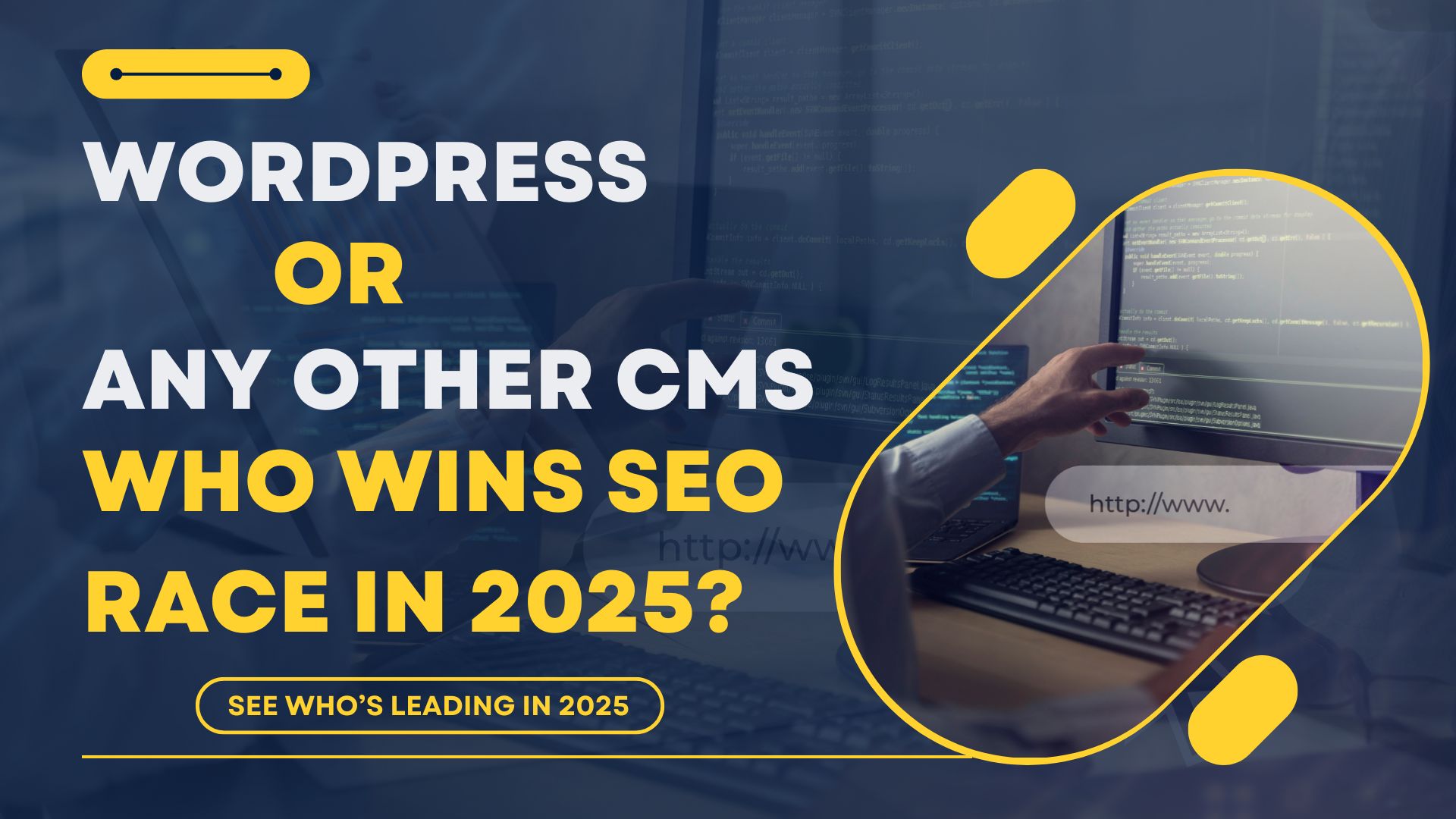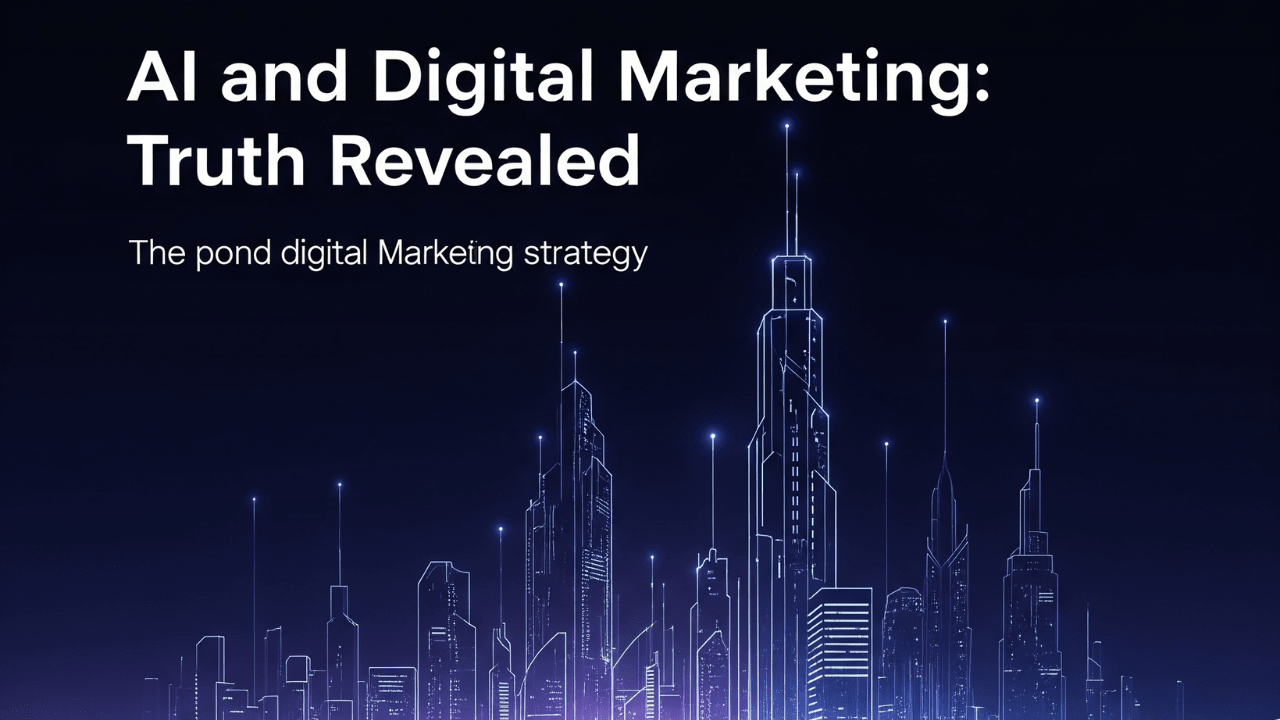The digital landscape has been rapidly evolving, and in 2025, we are experiencing technologies like never before. Despite this, one debate has been continuously ongoing: “Which is better or SEO friendly, WordPress or other CMSs?”
Search Engine Optimization is the key to digital success, and if you ignore it, your website will continue to decline in search engine rankings.
As the competition for top SERP ranking becomes fierce, the choice of a content management system (CMS) and how it empowers site owners with modern SEO tools becomes vital.
In this post, we are going to have a deep look into WordPress and other popular content management systems to identify who wins the SEO battle in 2025.
Table of Contents
ToggleWhy CMS Choice Matters in 2025?
In 2025, SEO works with a combination of technical precision, user experience, content relevance, and automation. Google’s algorithms are becoming smarter, and they are favoring relevance, intent, structured data, and site performance. If the CMS you choose makes these SEO fundamentals easy to execute, it will be advantageous. Here are some of the key SEO needs one needs today:
- Automated and AI-powered keyword research and content optimization
- Schema markup and structured data integration
- Fast, responsive websites for desktop and mobile users
- Technical SEO controls (meta tags, sitemaps, robots.txt)
- Ongoing updates to adapt to algorithm changes
Platforms that automate these elements and integrate AI-driven insights increasingly set the pace.
WordPress – The Leader
We must say that WordPress has been the first choice for business owners when it comes to developing a website. Even in 2025, when the digital landscape has changed drastically, WordPress development services have continued to be in high demand, as WordPress remains the leading CMS platform. Here are some of the reasons why:
Built-In Plugins
One of the parameters that makes WordPress the choice of CMS is its built-in plugins. With a huge collection of free and paid plugins, one can incorporate various features into his/her website. From on-page optimization to automating technical fixes, plugins can do it all in a flash in WordPress.
Not only this, but AI integration in plugins has made things smarter. This may be one of the reasons that over 43% of websites globally are built on WordPress.
Key advantages in 2025 include:
- AI-Driven SEO: Tools increasingly rely on machine learning for smarter keyword research, content optimization, and predictive trend spotting, helping users outperform competitors with less effort.
- Schema and Structured Data: Plugins like Schema Pro automate rich snippets, boosting click-through rates in search results.
- Technical Health Automation: WordPress plugins flag and fix crawl errors, page speed issues, and duplicate content, keeping websites primed for ranking
Accessibility and Community Support
WordPress is praised for its user-friendly interface. Along with this, qualities like setup wizards and extensive documentation, WordPress makes advanced SEO accessible for both beginners and experts. Being an open-source platform, WordPress ensures plugins stay updated as per Google’s latest updates and best practices.
Content and Flexibility
WordPress has a flexible architecture, and this allows users to create high-quality and optimized pages, posts, custom taxonomies, and navigation structures. With AI integration, plugins now also provide suggestions on the latest topics, optimizing metadata, and maintaining the freshness & authenticity of the content. All this is crucial for higher SERP rankings in 2025.
The Competitors of WordPress and Popular CMSs
Shopify
Shopify is becoming popular at a fast pace. For e-commerce, it has built a great reputation. Its built-in SEO features, like clean URL structures, automatic sitemap generation, and integrated SSL, make it a tough competitor of WordPress. Now, when it comes to user-friendliness and customization, this platform needs additional applications and developer support.
If you run an e-commerce business, Shopify may be a good choice, but its SEO potential may be limited when compared to WordPress’s plugin flexibility.
Wix and Squarespace
Both platforms have invested heavily in SEO tools, offering visual guides, metadata inputs, and structured data utilities. Wix, for instance, has improved page speed and introduced AI-driven site suggestions. Still, plugin customization and granular technical control remain more limited than with WordPress. For simple sites, Wix and Squarespace offer a user-friendly experience, but they can fall short for advanced technical SEO needs or unique use cases.
Joomla and Drupal
If you are an experienced user, Joomla and Drupal offer a great technical SEO potential. Both of these are open-source platforms that allow a good site structure and advanced customization features. However, one needs a deep insight into these platforms to use them effectively. Additionally, when compared to WordPress, the plugin ecosystem is lighter, and that can pose some challenges.
Headless CMS
Two of the most popular headless CMS platforms are Contentful and Strapi. These platforms are gaining attention for projects that require custom front-end experiences, high performance, and advanced SEO services. When it comes to speed, headless CMS offers great potential, but for non-technical users, it is not a great choice. Managing SEO in a headless CMS is complex, especially for those with a non-technical background, making it essential to consider professional SEO services to ensure optimal visibility.
Who Wins the SEO Battle in 2025?
The Case for WordPress
There are several reasons why WordPress sits at the top for SEO:
Depth of Automation
When compared to WordPress, no other CMS can offer as many AI-powered plugins as WordPress can.
Simplicity at Scale
WordPress is beginner-friendly, and hence, anyone without a technical background can leverage its SEO capabilities. On the other hand, experts can enjoy endless customization and integration opportunities.
Community Updates
Rapid response to Google’s ever-changing algorithms via plugin updates and support.
Performance and Features
With proper hosting and plugin selection, WordPress sites meet and often exceed technical requirements for mobile speed, crawlability, and structured data—moats that search engines prioritize.
Advanced platforms like Shopify, Wix, and headless CMSs offer compelling solutions but rarely match the combination of accessibility, automation, and depth available in WordPress, especially for users seeking full control over their SEO strategy.
However, being a large enterprise, if you want custom workflows or highly technical teams, you can opt for CMSs like Drupal or a headless CMS. As with proper configuration, maintenance, and optimization using best practices, they can outperform WordPress in various cases. But for most creators, marketers, and businesses in 2025, WordPress remains the clear leader.
Conclusion and Forward Look
WordPress continues to lead the SEO game in 2025 by merging user-friendly design, advanced AI tools, and responsive community support. WordPress holds the fort with its ability to serve users from beginners to professionals. Additionally, it can quickly adapt to the changing search engine requirements.
Competitors are closing the gap, particularly within e-commerce and visual site builders. However, their lack of deep plugin ecosystems and advanced technical controls leaves them trailing those who demand full-spectrum SEO.
While any CMS can be tuned for high performance, WordPress’s ecosystem and focus on accessibility, automation, and continual improvement keep it at the top of the SEO leaderboard.




